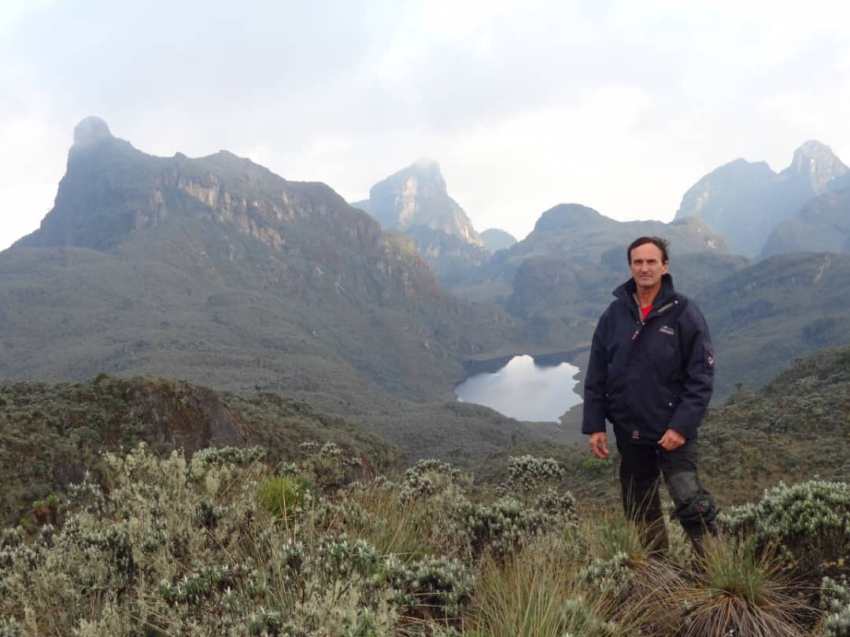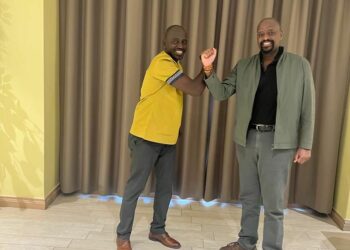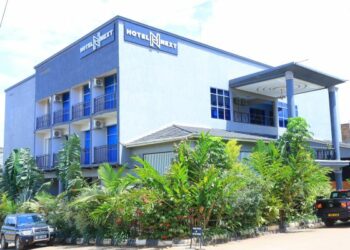John Hunwick, 73, the founder of Rwenzori Trekking Services (RTS), has been facilitating climbers to Mt. Rwenzori, since 2009. The company offers, a variety of trekking trips- one day (forest trek) to 10-day-4-peak trips to the top, that include Margherita Peak, Mt Speke, Mt Baker and Weismann’s Peak. We caught up with him for insights on the impact of Covid-19 on the tourism business and the post-Covid-19 future of the outdoor adventure sector as well as the opportunities therein.
First of all, the tourism sector, here in Uganda and all over the world has been hit by the travel restrictions put in place by governments trying to control the spread of the Covid-19 virus. How has your business been affected?
Well, quite, to be honest, the business has been hit and hit hard. More than COVID-19, the floods that you’ve seen have hammered us. We have had to do a lot of repairs, we spent probably close to UGX200 million, repairing the trails and replacing the hut that was swept away. The good thing here is that it has kept the porters and guides with jobs, but it has been very expensive on our side. But that’s what it is.
But the other thing is with the COVID-19, it’s given us time to think. It has given us time to start training. We are constantly training plus have brought in highly experienced international trainers from Norway, Germany, Spain and UK to train our guides in all aspects of mountaineering, ropes, rescue techniques, nature interpretation, birding, Advanced Wilderness First Aid, health and hygiene, cookery skills and customer care.
We are also training them in key languages such as German and French, to start with, and when they get a grasp of that, then we’ll go to Italian and Austrian. So, we’re covering those main areas from Europe, where most of the older generation do not speak English, but they’re very interested in mountaineering.
For example, in Germany, there’s an umbrella organization that has over 7 million members of different mountaineering and trekking clubs in Germany. That’s an enormous marketplace. But a lot of those people can’t speak English, or they speak very little English. So, what we need to do is take the bull by the horns and say, right, we need to train, we need to teach our people how to speak German, how to speak French and then that will bring a lot more tourists.
Regardless of the challenges, I am proud that as a company we have built a team, with teamwork and Cooperation.
I am also proud to say at we are proud to share our success with the communities around us. For example, we have added proper classrooms on five schools in the area knowing that if RTS is to be sustainable we need people with a better education yet most of the schools here were sticks and mud.
Last year due to the floods which destroyed Kilembe Hospital we built a Heath Centre 2 and handed it to the government to run on 26th September 2020.
Is that kind of training, that kind of preparation, something you want to implore other two operators to also engage in?
I think they should. There is a huge potential. We just can’t sit there and complain. We need to take off time to lift the standards of our lodges and use this time to train our people. For example, we took three of our guides to Fort Portal for six months of training in tourism and hospitality and catering. We didn’t have much work here, so we decided to put them on a bit of a retainer and send them up where they can get more experience. When they come back, they will teach other guides.
We are taking advantage of this low period, where there’s not so many tourists to improve and be ready for when the big flush of tourists come after COVID because believe me after COVID there’s going to be a lot of people wanting to travel. They’ve been stuck in their homes, stuck in their villages in Europe and Australia and everywhere else, but they’ve not been able to travel. They are going to be hungry to get out and travel and tour.
What is the future of mountaineering especially in the Rwenzoris versus our potential?
The future of the Rwenzoris is very bright. There is a lot of people who want to get out into nature. They want to experience nature, and particularly with this COVID-19 people have become much more aware of being in nature. I believe there is a huge potential for a lot of outdoors activities.
I have just been speaking to Julian of Ascents Africa Limited (one of the key players in outdoor adventure in the region) and I was shocked to hear that they have got six helicopters at Nanyuki Airstrip, just below Mount Kenya. It’s a 15-minute joy flight to the top of Mt. Kenya.
These guys offer joy flights where tourists get to experience walking in the mountains, climbing the peaks and coming down, then overflying the mountain with a helicopter. Not only that, but they also fly over the Aberdare Mountains and other areas in the national parks, to have the tourists get a rare aerial view of what the beauty of Africa is.
Here we’ve got Queen Elizabeth, with several animals, then Lake Albert and Lake George and the adjoining Kazinga Channel; we’ve got the Rwenzoris, and we’ve got several crater lakes in the Bunyaruguru and Fort Portal area as well as Kibale Forest National Park, all within a 1–2-hour air distance. I have ever flown over the Crater Lakes area in Fort Portal a few times and it is stunningly beautiful. Joy flights could be a big industry and a fantastic business opportunity that could take off and bring a lot of visitors to this area.
Do you have a story in your community or an opinion to share with us: Email us at editorial@watchdoguganda.com











